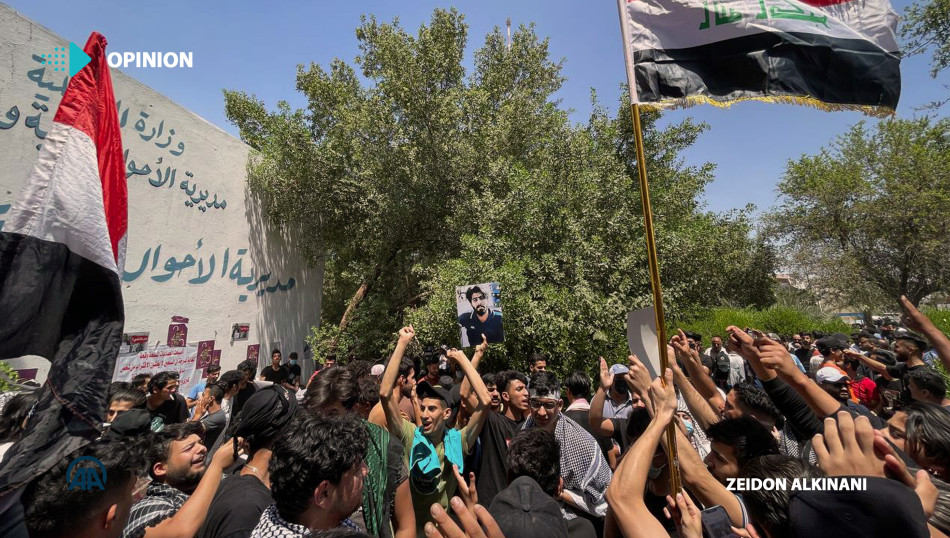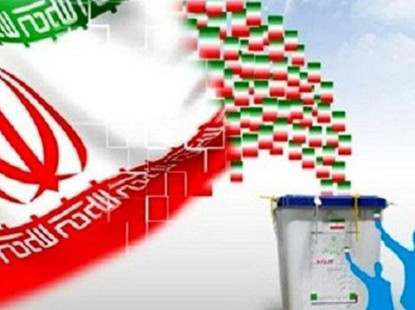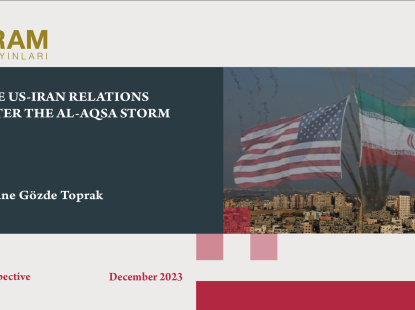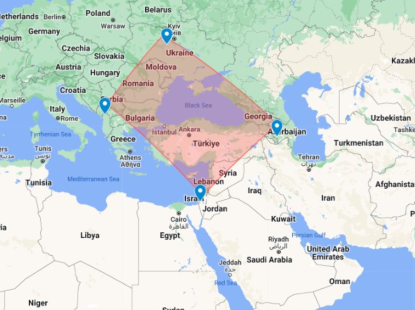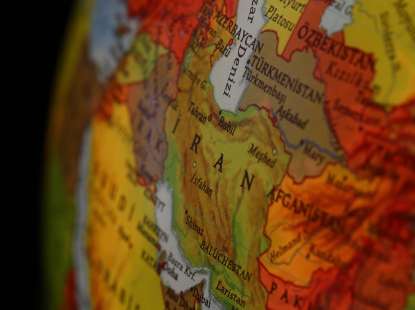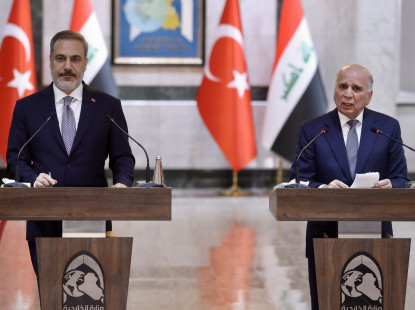Karbala’s Response to Leading Protester’s Assassination: Anti-Iran Sentiment and Electoral Boycott
According to many activists, activist Ihab al-Wazni was shot and killed in Iraq’s Karbala by “Iranian-backed armed militias” early last month. The assassination is a part of a series of violent acts towards activists, researchers, journalists, and other members of society that have supported or been a part of the October protest movement, which first took place during October 2019 against rampant corruption, political sectarianism, security instability, and unemployment.
Fingers usually pointed at the political parties affiliated with Iran and are known for having active armed groups within the Popular Mobilization Forces (PMF) due to the heavy criticism Iran is handling since the outbreak of the October uprising. The US assassination of Qasem Soleimani, Commander of Islamic Revolutionary Guard Corps's (IRGC) Qods Force, is arguably a result of the protest movement’s invert of the geopolitical security equation in the country.
Al-Wazni is known as Karbala’s head of the coordinating committee of the protests and is a popular figure and voice against corruption, poor public services, Iran's interventionist role, and militias in his hometown, Karbala.
Prime Minister Mustafa al-Kadhmi refers to any claims regarding the government’s inability to hold al-Wazni’s assassinators accountable as “delusional.”However, it is essential to note that this public mistrust towards the state's role in protecting members of the civil society from targeted political violence and ensuring the part of accountability to limit such acts in the future is based on past governmental failures and shortcomings.
Former official spokesperson for PM al-Kadhmi and popular media television presenter Ahmed Mulla Talal stated that the government is unable to disclose information on the assassination of Iraq's top security expert, Hisham al-Hashimi, due to its “complexity and mismatched information.” As a result, Al-Hashimi, like many other researchers or activists, was killed by “unidentified gunmen.”
The outrage followed by the murder of Karbala’s leading activist led to public re-affirmations by various forces of the October protest movement towards boycotting the upcoming early elections of October 2021 in a repetitive and reassuring attempt to de-legitimize the political system. However, in consideration of al-Wazni’s significant criticism of Iran’s role in Iraq and the political violence committed by its affiliated armed and political groups, protesters reflected a certitude towards Iran’s direct or indirect involvement in the act.
Karbala protesters marched towards the Iranian consulate in the city. This act was not the first time when demonstrators approach the Iranian consulate. For the past few years, demonstrators torched the Iranian consulates in the holy city of Najaf and Basra.

In an online webinar hosted by the Center for Iranian Studies in Ankara (İRAM) titled 'Iraq's October Protest Movement: The Political Challenges and Electoral Limitations,' on May 11, 2021 – Inna Rudolf, a research fellow at the International Centre for the Study of Radicalization who is completing her Ph.D. on the PMF, and the implications for the future of Iraqi statehood at King’s College London highlighted the importance of realizing that the anti-Iran slogans also address unruly militias and the Iraqi government that are not necessarily in alignment with Iran’s interests in Iraq. Rudolf also added, “groups have not only targeted activists but also experts who have invested much time trying to understand and analyze the function of their networks.” The latter claim allows us to connect the dots when hearing about the assassination of a critique voice towards the overarching political power: pro-Iran camps, its affiliated militias, and their portion in the Iraqi political system. Moreover, Dr. Ali Taher Al-Hammoud, one of the event's panelists, emphasized the high level of pressure presented towards the pro-Iran factions in Iraq's political system by the anti-Iran slogans.
Al-Wazni’s assassination witnessed re-affirmations through statements from al-Bayt al-Watani, the Iraqi Union for Work and Rights, and even current MPs such as Faiq Al-Shaikh Ali that they will boycott the upcoming elections.
The protest movement and its emerging political entities are establishing a new political framework, which the post-2003 Iraqi political class failed to provide, explains Dr. Haider Saeed during İRAM's panel discussion. Dr. Saeed, who is the head of the research department at the Arab Center for Research and Policy Studies, claims that the protesters' boycott of the early elections is political participation in itself as it is an “act of delegitimization” towards the system.
In response to Dr. Saeed’s rationalization of the electoral boycott and the protest movement’s low chance and gains in the political system, Dr. al-Hammoud emphasized the importance of accepting a minor role in a parliamentary democracy at some point to guarantee an increasing role and influence in future governance.

In an attempt to get a grasp of the Iraqi political Twitter community's stance on the upcoming elections, I created a survey on whether, “Do you agree that the Iraqi protest movement must turn into a political entity and participate in the upcoming elections?”. Two hundred twenty-nine votes presented 45% in favor to participate in order to guarantee an opposing voice, 37% to boycott and continue as a widespread opposition, and 18% voting for the possibility of participating in different elections in the future. During the same week, this survey took place, al-Wazni was assassinated – the event led to the announcement of many new emerging political entities withdrawing from the early elections taking place this October.
Demonstrators took to the streets on May 25th under the slogan and hashtag (#Who_Killed_Me?) (#من ـ قتلني؟) in reference to al-Wazni’s assassination, a relationship which reflects al-Wazni’s importance to the overall protest movement. In addition to demanding justice for al-Wazni’s murder and fulfill Karbala's demands or accept “the fall of the political system,” the calls included demands of accountability and an end to impunity.
In an assessment of understanding the current returning anger, al-Wazni’s assassination is not the first of its kind, yet the time is different. “In contrast to the past COVID-19 epidemic that had just begun and a new government with uncertain intentions being formed, the current context is different,” says Iraqi journalist Ahmed al-Sheikh Majed. He adds, “in addition to al-Wazni’s significant influence and activities in all Iraqi arenas, the public anger is accumulating and we are still not witnessing any accountability outcomes from Hisham al-Hashimi’s assassination.”
The protests were, again, met with violence. A recent UN Report on Iraq’s demonstrations with documented killings reflected the Iraqi government’s shortcoming towards enforcing the rule of law. Moreover, the UN report highlights how many of the recent arrests of prominent figures from armed groups or anyone accused of killing protesters have not moved beyond the investigation phase – and that in itself is a crucial exposure of the governmental unwillingness to protect citizens’ right to freedom of expression.
Al-Wazni was not an ordinary activist or protester nor a political commentator with a soft-approached critique towards the political system. On the contrary, he was arguably one of Karbala’s protest movement leaders and a potential candidate to any elections that would be acknowledged by the protesters. Therefore, if any of the parties calling for early elections are involved al-Wazni’s assassination, then it is a self-delegitimization attempt of the process. On the other hand, it could also be considered as an attempt to further encourage the electoral boycott by the political forces that fear for the major loss in an upcoming election due to their evident affiliation with armed groups targeting the activists and protesters.
